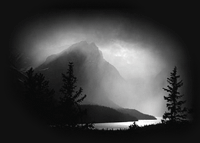To Climb or Not to Climb For Tibet?
Yesterday in the Java bar in Thamel, I
read that a friend of mine had decided not to climb Everest for
ethical reasons this year. He believes that by not climbing he is
showing support for the Tibetan people. Hmm, I am not sure how his
argument goes, but as I read the news here in Nepal, I have yet to be
convinced that my friend's ethics make sense.
I sipped my
coffee, looking out over the hooting traffic, the noisome fumes of
Thamel and saw on the news that round the corner from us that
Tibetan sympathizers have been forcibly removed from their protest.
Teams with plans for the North side of
Everest had been dealing with the usual mountaineering authorities
when the central government stepped in and cancelled all permits on
the Tibetan side of the mountain. They then went to work on the
Nepalese. About 2 weeks ago the Nepalese government announced they
would cancel all the permits for Everest this year.
It seems that last thing the Chinese
wanted was for climbers to ascend Everest from any side. This is
where my friend's ethical reasoning looks flawed to me. If all the
climbers backed out right now, would stand to gain?
There
followed some pretty rough representations from the Sherpas who said
they liked neither the threat to their livelihood nor the idea that
the Chinese could dictate to the Nepalese government.
A week
of negotiation followed till 28 March when we heard that formal
permission has finally been granted. A couple of details are still to
be worked out; usually the expedition liaison officer is from the
police or a functionary from the ministry of tourism, but the army
had been banned from this job some years ago to protect this
lucrative job, one presumes, for the civil servants.
The
police could not do the job, they are all occupied with the national
elections on 10 May, yet the government felt they needed a military
presence to enforce the new regulation for 2008; that between 1 May
and 10 May no climbers would sleep above Camp 2 or climb above Camp 3
on the Lhotse Face.
The solution after a week of discussion
seems to be the simple expedient of fudging the law, a bit. and
install army officers in the liaison role after all. we will have
army personnel at base camp and camp 2.
So, after some tense
weeks, we see smiling Sherpa faces, happier climbers, and, one has to
assume, some less than ecstatic politicians in Beijing. It would
really be stretching the point to say that climbing Everest is
striking a magnificent blow for freedom, but the opposite would be
unlikely to be true.
We leave for Lukla in 2 days.

